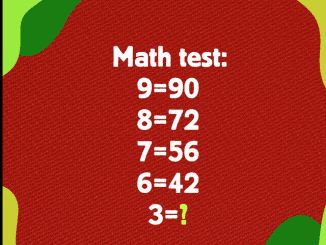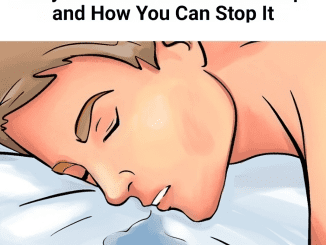Imagine feeling completely healthy while a dangerous condition quietly damages your heart, brain, and kidneys. Sounds terrifying, right? That’s exactly what makes hypertension, or high blood pressure, one of the most dangerous health threats today. The scary part? Nearly one in three adults is at risk—and many don’t even know it.
Let’s unpack why hypertension is called the “silent killer,” who’s most at risk, and how you can protect yourself before it’s too late.
Why Hypertension Is So Dangerous and So Easy to Miss
Hypertension doesn’t come with flashing warning signs or sharp pains. You don’t wake up one day feeling “high blood pressure.” Instead, it creeps up on you. While you’re busy with life, it’s slowly putting unseen pressure on your arteries, forcing your heart to work overtime.

Over time, this leads to damage that’s anything but silent—heart attacks, strokes, kidney failure, and even blindness.
By the time symptoms show up—things like headaches, fatigue, chest tightness, or blurry vision—the damage is often already in motion. That’s why it’s crucial to treat hypertension like what it is: a silent, slow-moving threat that demands your attention.
The Global Impact: Hypertension Is a Leading Cause of Death
According to the World Health Organization, hypertension is one of the top causes of premature death globally. It contributes to roughly 10 million deaths every year. That’s more than traffic accidents, some cancers, or even some infectious diseases.
And here’s what’s worse—it doesn’t just affect older adults. Thanks to poor diets, high stress, and sedentary lifestyles, more young adults and even teens are being diagnosed with high blood pressure than ever before.
This disease doesn’t care about your age—it only needs you to be unaware.
Video : What is High Blood Pressure? (HealthSketch)
Are You at Risk Without Knowing It?
You don’t need to be a chain smoker or 80 years old to be at risk. Many everyday factors push your blood pressure up without you realizing it. Let’s take a look:
- Family history of hypertension
- A diet full of salty, processed, or fast food
- Inactivity—long hours sitting and not moving enough
- Smoking or drinking alcohol in excess
- Being overweight or obese
- High levels of chronic stress
- Age—your risk goes up as you get older
- Poor sleep quality or untreated sleep apnea
Even people with healthy lifestyles can be at risk due to genetics or underlying health conditions. That’s why relying on “how you feel” is a risky game. You can’t feel high blood pressure—you can only measure it.
What Happens to Your Body When Blood Pressure Stays High

High blood pressure damages your organs like a silent wrecking ball. Over time, here’s what it can do:
- Heart: Thickens your heart muscle, increases the risk of heart attack and heart failure.
- Brain: Raises the risk of stroke, aneurysms, and even dementia.
- Kidneys: Damages blood vessels, reducing kidney function and leading to failure.
- Eyes: Causes retinal damage that can lead to permanent vision loss.
- Arteries: Hardens artery walls, leading to a condition called atherosclerosis.
It’s not just “a numbers problem.” Hypertension causes real, irreversible damage if ignored.
How to Take Control Before It’s Too Late
Here’s the good news—you can fight back. Hypertension is one of the most preventable and manageable chronic conditions if caught early. You don’t need to be a fitness guru or health freak. Small, consistent habits make a big difference.

Here’s how to start:
- Check your blood pressure regularly. Even once every few months can catch a rising trend early.
- Cut back on sodium. Avoid adding salt at the table and watch out for hidden sodium in canned or packaged food.
- Move more. Aim for 30 minutes of walking or light activity most days.
- Eat smarter. Focus on whole foods—fruits, veggies, lean protein, whole grains.
- Quit smoking. It damages arteries and raises blood pressure immediately.
- Limit alcohol. Stick to moderate drinking, or cut it out altogether.
- Sleep better. Poor sleep quality is directly linked to elevated blood pressure.
- Manage stress. Use techniques like breathing exercises, journaling, or mindfulness to unwind daily.
- Take medication if prescribed. Don’t skip your pills—even if you feel fine.
Think of it like car maintenance: You don’t wait for the engine to catch fire to check your oil. The same applies to your body—early care prevents later damage.
Why Regular Blood Pressure Checks Could Save Your Life
Let’s be real—most people avoid checkups. We’re busy. We’re “fine.” We don’t want to hear bad news. But when it comes to hypertension, ignorance is not bliss—it’s deadly.
Video : 15 Foods to Avoid If You Have High Blood Pressure!
A quick, painless blood pressure check could be the difference between a healthy future and a medical emergency. It’s that simple. No fancy tools. No invasive procedures. Just a cuff and a few seconds of your time.
Conclusion: Awareness Is the First Line of Defense
Hypertension isn’t loud. It doesn’t knock on your door and announce itself. It hides, waits, and strikes when you least expect it. But it doesn’t have to be that way.
With one in three adults at risk, this isn’t just a health statistic—it’s a wake-up call. Whether you’re young, old, healthy, or somewhere in between, you owe it to yourself to know your numbers and take action.
Your future self—your heart, your brain, your kidneys—will thank you.


